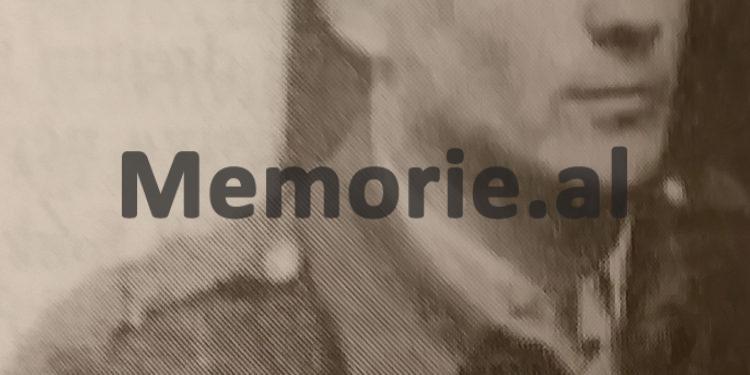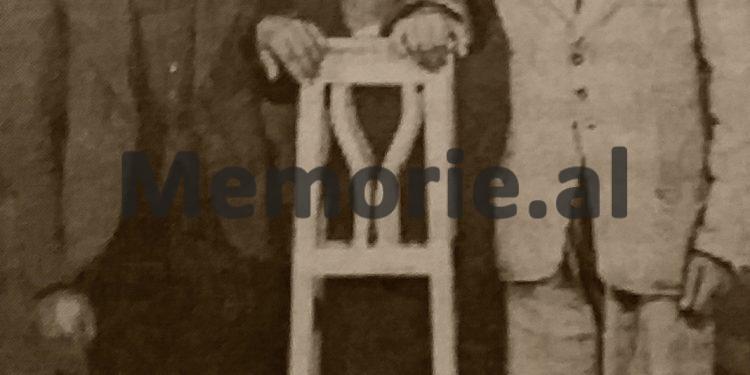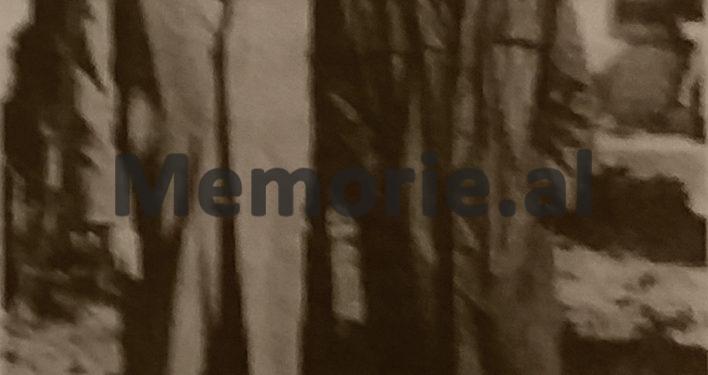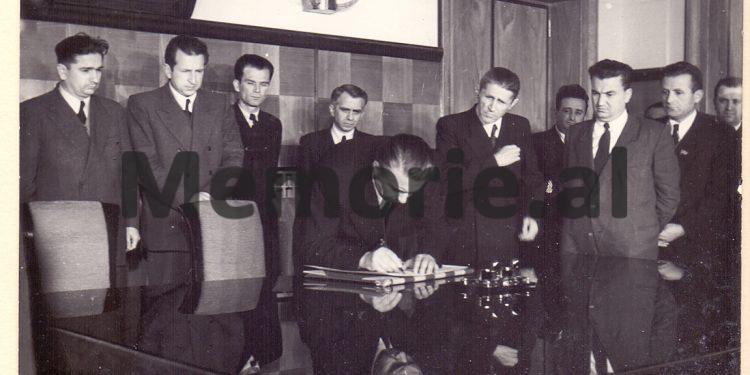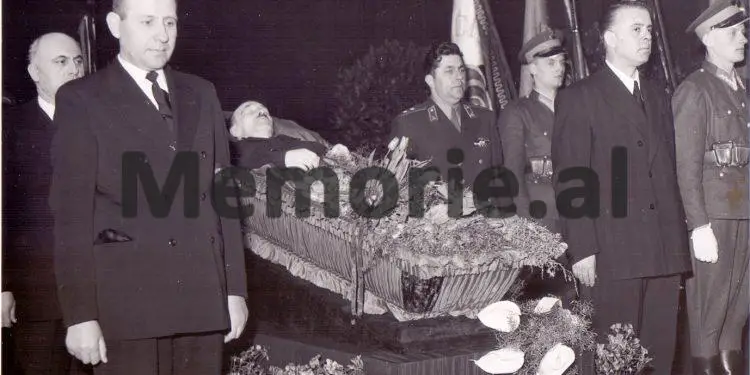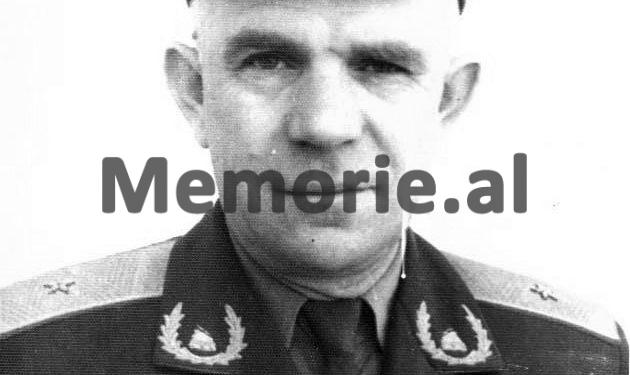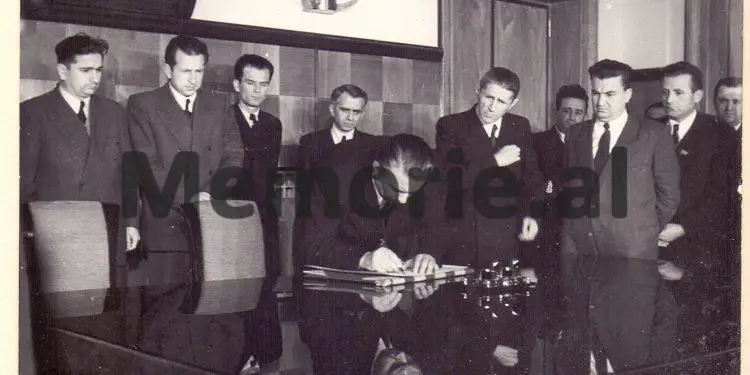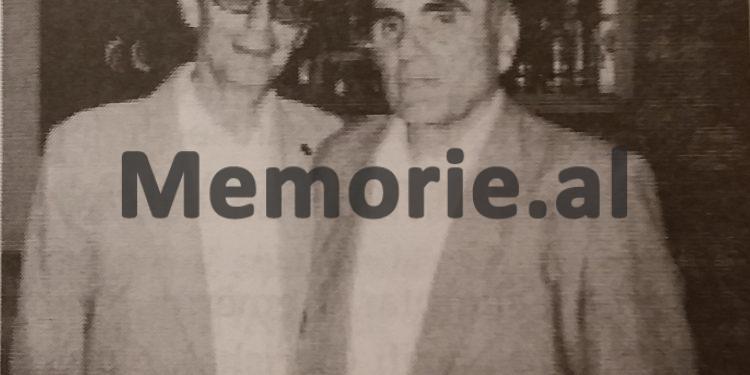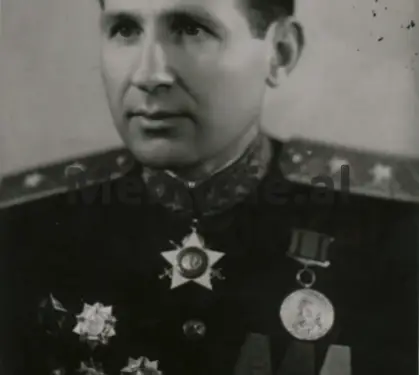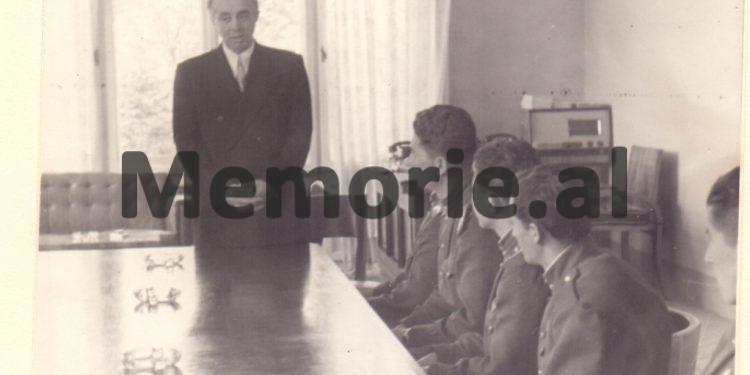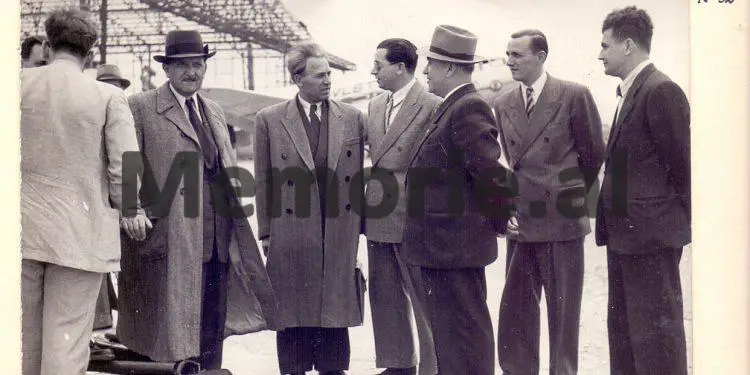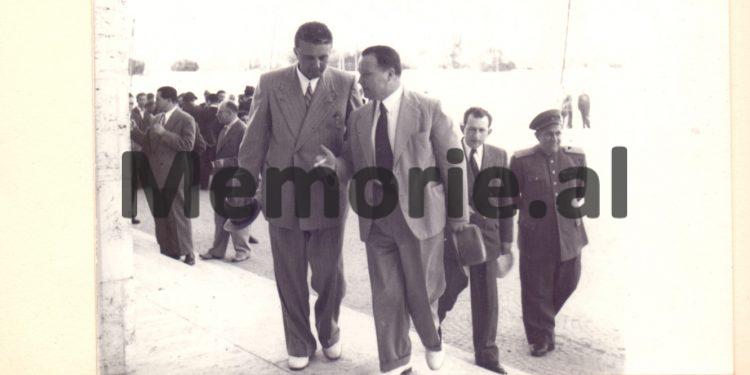By Zef Dod Gjeloshaj
Memorie.al publishes the unknown story of the Gjeloshi family from Triesi, Montenegro, through the rare testimonies of Zef Dod Gjeloshaj, one of her suckers, who in January 1950, after the conflicts his family had with the Tito regime , where some of their sons were killed, as well as the event when the Gjeloshi family fought for several hours against the Serbo-Montenegrin military forces, after refusing to hand over a Serbian officer (grandson of Djoko Mirasovic, “Hero of the Peoples of Yugoslavia” who has two busts in Montenegro), who had asked for their trust, he was forced to flee Montenegro, coming to Albania as a political emigrant. Zefi’s “stabilization” in the Llakatund camp in Vlora, where the communist regime of Enver Hoxha kept isolated about 800 Yugoslav citizens of Albanian origin, who due to the discriminatory policy of the Titoist regime towards the Albanian population living in their ethnic lands in Montenegro, Kosovo and Macedonia, as well as Rankovic’s crimes against them, had fled and come to Albania. Zefi was appointed a teacher in the Lushnja district, where in 1951, the Ministry of Internal Affairs summoned him to Tirana, where two officers, Petrit Arbana and Vilson Pecani, who covered Yugoslav emigration to Albania, charged him with a secret mission, sending him in Yugoslavia together with the Serbo-Montenegrin Colonel Petar Blazovic, who had resigned as UDB Chief for Montenegro and fled. What tasks did Zef Gjeloshaj perform in Yugoslavia, how did the secret mission assigned to him by the Ministry of Interior in Tirana end and why was he sentenced to 15 years in prison in Albania, accused of killing the UDB colonel with his own hand?! Zef Dodë Gjeloshaj has skillfully described all these in his book, “Voice of Memories”, published in 2006, with an introduction by the prominent writer, Dritëro Agolli, or as he is otherwise known, as: “Patriarch of Letters” Albanian.
Preface by Dritëro Agolli in the book by Zef Dod Gjeloshaj
“A book that makes us think”
Everyone is a story in itself, a story of work and war, friendship and enmity, love and hate. These are lived events, they are life and living experiences that people do not keep to themselves, but tell to friends in the village, in the city, at home, in cafes and everywhere.
The most precious of these stories are spread by word of mouth and heard by a wide circle of people. Yet they, when not written, fade and perish with the death of those who have told them and those who have heard them. Therefore, it is said that the past remains, no matter how it is written. The written thing, neither water suffocates, nor fire burns.
Zef Dod Gjeloshaj has the good fortune to tell and write the events of his life and for others to remain unforgettable.
A man with great life experience and very complex, a man who has merged experience with culture and from this fusion, has gained wisdom. This man named Zef Dod Gjeloshaj, gives us a rare book with memories from his life, in relationships with the lives of others, friends and opponents of truth and falsehood, and above all, patriotism and ostensibly patriotism.
In this book of memoirs, he recalls his vicissitudes, when he was very young towards the path of truth, as in his youth he equated the ideal with the homeland and called this true. This conception of truth then cost them dearly! As he writes in his memoirs, as he escapes from the Albanian territories of Montenegro, he longs for Albania, where he becomes an activist of the Informbureau, the international organization led by the Communist Party of the Soviet Union, for the triumph of socialism in the world.
With this mission, the young Zef is sent back to Yugoslavia to gather information that would serve to overthrow Tito and his regime. Let us not forget that we are in 1951, when Albania had two or three years since it broke up with Tito’s Yugoslavia, like the whole Socialist Camp, when Zef Dodë Gjeloshaj was a 20-year-old boy, like me, but he in Informbyro, I am still in high school in Gjirokastra.
This Zefi is strong.
But I do not intend to repeat in these notes what is in the book of Zef Dodë Gjeloshaj, I want to confirm the opinion, which I mentioned a little earlier, that in our youth we equated the ideal with the homeland! So, boy Zef, thought his activity in Informbyro, was patriotic work, as I thought. But I want to say that Zefi, for this historical notion, has been quite clever, for this let us quote a paragraph from his book, where he talks about a meeting of Informbureau activists, with Chuvahin, the Soviet ambassador, and Mehmet Shehu, at the end of 1951.
“As for my black, I, the youngest of the age, addressed a question to the general, Chuvah! Comrade General Vishinski, a member of the Politburo of the Central Committee of the Bolshevik Party, told a Comintern meeting: “We will eradicate Titoism, but we will preserve the Yugoslav Federation. If so, we Albanians from Ulcinj and Bar, up to the Vardar valley, what will we gain”?!
Without thinking at all, Chuvahini said: “This is what Comrade Stalin said.” The Georgian shook his head in approval, while Mehmet Shehu, irritated as he was by nature, addressed me: “You have not yet been liberated from the bourgeois nationalist point of view. You did not know what age we were in! “I was worried, but not so much that I thought those questions would cost me dearly in the fate of my life.”
Zef Dodë Gjeloshaj masterfully in his book gives these ambushes in the course of the story, ambushes that try to hinder the lake of love for the homeland. However, for the homeland you grieve, but you do not get angry. Zefi, as I judge him, thought in the time of disappointments, that the state is not always homeland.
In the story of his life, Zef Dodë Gjeloishaj, without falling into artificial literature, masters well the mastery of the trap to catch the reader, he possesses what I would call a clock, as if it were not to be left untouched, in a word, for the event to move forward, for the reader to become curious and say: what will happen next?
He who in the first pages of the book, when he tells about his life as a student of the gymnasium of Peja, says that he was followed by the people of the Yugoslav Security, those of the UDB. Zef Gjeloshaj writes about this:
“The beatings against me started in Gjakova. I was concluding that I did not know much. Poor Socrates, why didn’t he leave me a ration of poison from the one who drank it himself, when he was sentenced to death for blasphemy, the group of tyrants of Athens”?!
And further happened many events, many vicissitudes, many despairs and joys. With a strange composure, he gives the tragic events, such as the poisoning in the Tirana prison, but this is the composure of the revolt, which calls the other prisoners: beware, because I was poisoned!
The book of Zef Dodë Gjeloshaj, this man who comes from a large, noble and patriotic family, shows the birth and maturity of a man.
This book is not written in the form of a boring chronology, but a strange movement within the chronology. The author, by the way, even when he sets the event in the 50s of the last century, has an intervention for our days, even when he tells about a place where he went, he reminds us of the history of this place.
With his book, Zef Dodë Gjeloshaj is known for a wide literary, philosophical and patriotic culture. This makes him narrate in the book with special wisdom and with admiring human feeling even the most tragic events of his life.
Zef Dodë Gjeloshaj, with his experience and culture, knows that, except for the flag eagle, all other eagles make voices…!
Dritëro Agolli
December 13, 2006
Passages from the book “Voice of Memories”, by Zef Dodë Gjeloshaj
“They will have reserved a dungeon for you”
With my dear cousin, Professor Nikoll Margilaj, I had no reservations, so I told him every secret of the soul. One day, Nikola told me: “You clashed with General Çuhvahini, you are against the platform of the Informbureau that follows the Albanian national issue. He calls anti-national the expression and position held by the Albanian state for art and literature “which is in socialist content and in national form”. You have quarreled and have a disrespectful attitude towards your superiors. It is rumored that you killed some senior Yugoslav officers, such as Petar Bozovic, Rados Zivkovic, etc. “Only one of these is enough to put you in prison and punish you with the most severe measure.”
“For me,” I told Nikolla, “there is no prison in Albania.” While Nikola told me: “You will have reserved a dungeon for you”. Nicholas’ words, which I considered to be the closest and wisest counselor, made me think. I thought that the Soviet-Albanian friendship manifested the highest peaks.
On November 15, 1952, an order arrived from Tirana: “To come to Tirana for an important problem”. At the train station in Tirana, two people were waiting: I. A. from Tragjasi in Vlora and one from Berat. They gave me a hug from “Jude”. “You have a very secret meeting. “People from abroad have also come to us”, they told me in two words the purpose of the urgent call. I was taken to Siri Kodra Street, and at the end of this street straight to the office of the guard officer of the Directorate of Internal Affairs of the Tirana District. After checking me with a weapon trick, they told me: “In the name of the people you are under arrest” and handcuffed me.
At the height of my anger, I told them: “You will be held accountable for this illegal and provocative act you are doing to me. “You respect neither the blood nor the supreme sacrifices that I and my family have made for the nation and the homeland.”
In the blue and cloudless sky, it seemed to me that everything was dark and that the autumn storms were not over.
With the respective car they took me to the old prison and buried me in the small dungeon with no. 48, – cement down, up and sideways. When I got used to it, it seemed to me that a dim light came in from above like through a chimney. The cement and concrete floor were icy and damp. The corridor of the L-shaped dungeons was very long. Intensive investigation began. Nevzat Haznedari, the famous Xhavit Struga and the permanent Ferhat Matohiti, were not separated from me. They used the most ridiculous accusations. One of these was agitation and propaganda and, specifically: “You told Bajram Gjoni that the newspapers lie when they call Maliqi a city”?! While I was protesting for such absurdities, add here the accusation that they made me that: “in x time you expressed the thought to escape from Albania”, I told them with conviction that at that time for which you accuse me of attempting to escape , I was outside Albania with assignments from Informbyroja!
When the investigators were confronted with the indisputable facts that I presented to them, they used the accusation as a lifeline: “Did you kill the senior officer, the internationalist communist Peter Bozovic?”
“No,” I replied, “I have not killed a single person in my life, although I have had and still have many rights to receive.” Moreover, it never occurred to me to kill my work colleague, Petar Bozovic. Browse well the evidence that you will learn that Peter is alive: also learn his birthplace.
Biruca nr. 48 was close to the Investigation offices. Only a dungeon, the one with number 49 and the door separated me from those offices. In dungeon 49, I learned that he was a Kosovar old man with the surname Kabashi, who was said to have been a gendarme in Zog’s time. The offices, which were like the “Factories” of the Investigation, worked day and night non-stop. I was not satisfied with my small dungeon, “frigoriger”, completely alone where I was sent for 10 months under the threat of hunger, holding the soul with oatmeal juice given to me by prison, but torture for me were the cries of Albanians in the “Factories” of Investigation , on whose body the methods of torture of the Russian KGB were experimented.
My arrest was kept secret. Neither my man nor my friends knew about this. To the specialists of these deeds, it seemed that they did not like the arrest of the son of the Gjeloshaj family.
By the beginning of the winter of 1953, the investigator was doing his job. It seems that the top leaders of the Ministry of Internal Affairs had reached the conclusion: “My mysterious disappearance”, and to justify this, they had the alibi ready: “He was killed in the line of duty”, they could even declare me “Hero”.
The moment arrived: They gave me the poison of death…!
One rainy and stormy night, Captain Rexhepi, who was the best of the prison non-commissioned officers, brought me oatmeal. It had a special taste, but I ate it without nausea, from hunger which is the most terrible enemy of the convict. After an hour, my heart started beating. I felt a headache and had dizziness; I was fainting. I realized that I had been poisoned and that they wanted to mysteriously destroy me.
Before I gave up the ghost, as I was in solitude, it occurred to me to sound the death alarm. I knocked hard on the door and started shouting: “I want to go to the bathroom; I am vomiting and with diarrhea”?! Poor Rexhep opened the door for me. When I reached the middle of the corridor, I gave myself strength and shouted, giving the final alarm and testament: “O isolated people! Whoever of you comes out of these cells alive, let him know that I am Zef Gjeloshaj. Trust in the name of God, inform my mother, in Nikmarash of Tries, that I, her son, is dying in the dungeons of the Tirana prison, poisoned by the state “.
The captors grabbed me and sent me back to the dungeon. Within minutes, the corridors were filled with a myriad of officers and generals from the Ministry of the Interior. In these moments, the voices of Xhavit Struga and Nevzat Haznedari could be seen, shouting loudly: “Nothing, there are nervous issues”.
About two hours later, I was taken to the central prison hospital, where the scholar Mirash Ivanaj, Tuk Jakova, died and was often “visited” in the isolation room of the Tirana prison by his nephew. Mehmet Shehu, State Security officer, H. SH. Within a short time, all the specialists of the General Hospital got up from my sleep, and happened to my head, among whom I remember, H. Papariston, Dr. Dibra, and Dr. Petro Canin. Just half dead, they started washing me with serum, etc. Mihallaq Ziçishti, General and Deputy Minister of Internal Affairs, accompanied by Gani Kapisyzi from Shkodra, whispered to the doctors: “We must be saved at all costs, otherwise we would have left everything in our hands”!
I do not forget the service and advice of the Tsar’s senior officer, ing. Alexander Badolski, who was convicted and hospitalized. As soon as I started to clear myself, I was sent to an isolation room inside the hospital, adapted as a prison room.
There alone I cannot forget the care he showed for me. Dr. Petro Cani. I learned that during this period, in the dungeons of the New Prison, the prominent Kol Maçi, of Hoti, was mysteriously killed, in whose house Mehmet Shehu had eaten bread several times with his suite.
In the window of the isolation room, the guard of the New Prison guard killed the Kosovar Llukman Lutfiu, who was sent from abroad, parachuted into Albania.
In the summer of 1953, I was sent from the isolation room to a larger room. When they found out who I was, the inhabitants of the dungeons who had heard my bequest threw themselves on my neck and wished me well for my second life. Among others, I remember Dr. of Theology, Bishop Irene Banushi, and Allaman Hysa. Ireneu gave me the underwear, as my clothes, like many parts of my body, had rotted in the frozen cement of dungeon No. 48.
Many prisoners were very sorry for me that I was a man without a man and they were in a “race” to help me with any food, such as Ireneu, Ymer Ndroqi, Beso Nishani, etc. Beson and I had a joint, specialized investigator, Ferhat Matohiti. It was not a joke to investigate Beso Nishani, that he had been a police colonel with an academy conducted in Istanbul, (he was the brother of the President, Omer Nishani). / Memorie.al
Continues tomorrow




